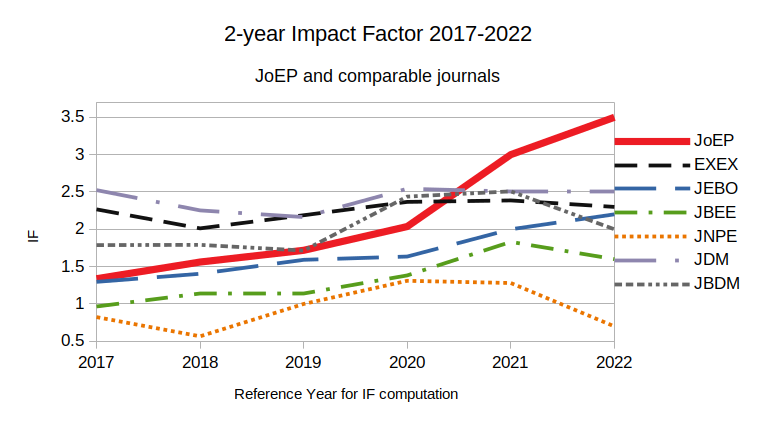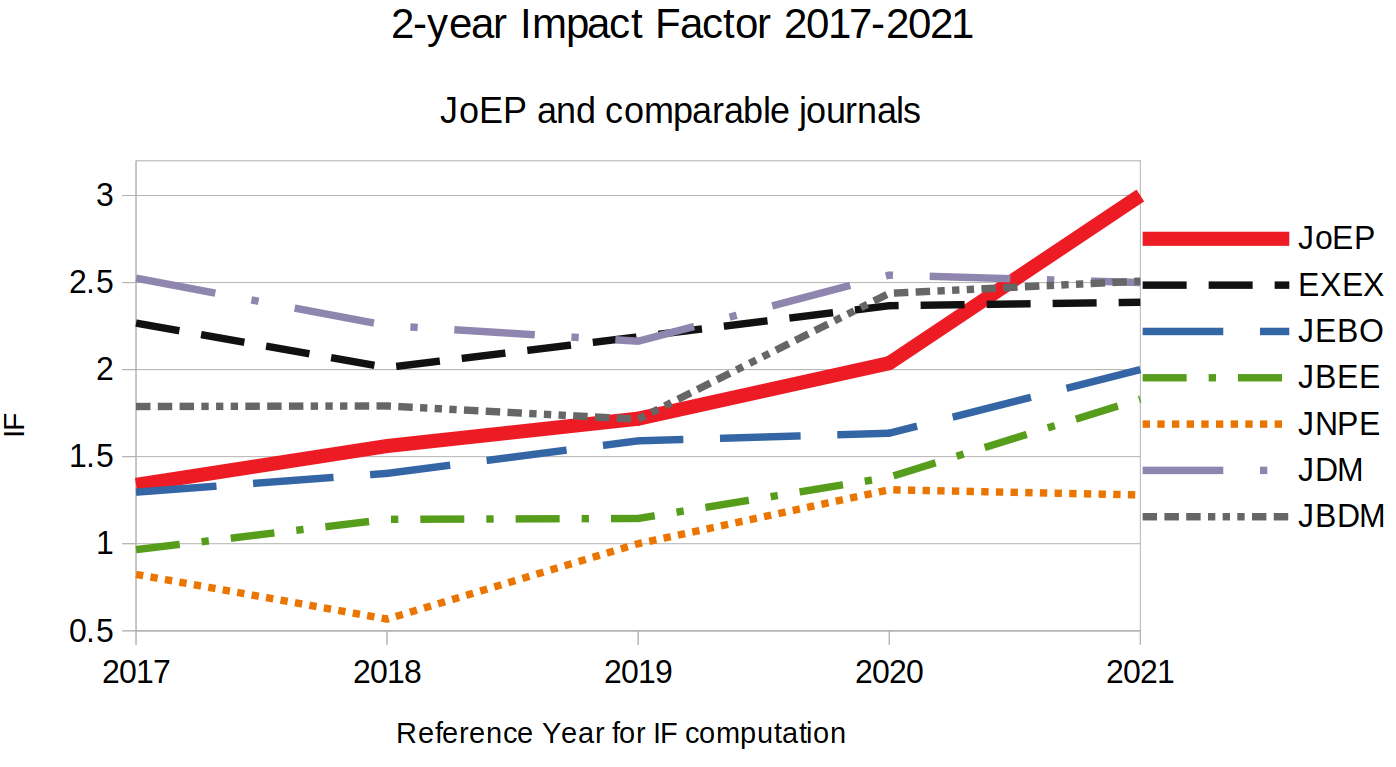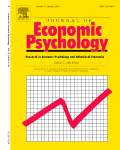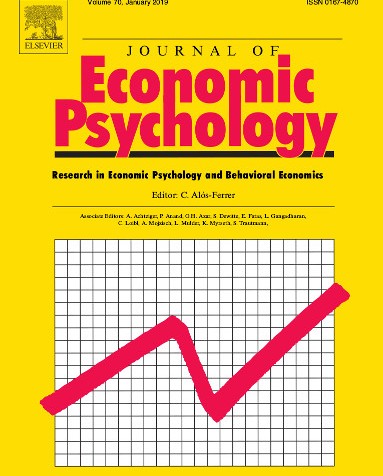Last year, the Journal of Economic Psychology became the leading journal in behavioral economics and economic psychology according to the Impact Factors for scientific journals (see last year’s post). This year, we have consolidated this position and even increased the difference. See the graph below! The Journal of Economic Psychology‘s Impact Factor is now 3.5 (Journal Citation Reports, two-year citation window, reference year 2022). It is up from 3.0 last year and 2.0 two years ago. For comparison, we are clearly ahead of excellent journals as Experimental Economics (IF of 2.3, last year 2.4) and Judgment and Decision Making (IF of 2.5, unchanged from last year). Other thematically-related journals that we compare ourselves to are Journal of Economic Behavior and Organization (JEBO: IF 2.2, last year 2.0), Journal of Behavioral Decision Making (JBDM: IF 2.0, last year 2.5), Journal of Behavioral and Experimental Economics (JBEE: IF 1.6, last year 1.8), and Journal of Neuroscience, Psychology, and Economics (JNPE: IF 0.7, last year 1.3). Those are all good journals, and we have good friends in their boards. But, with apologies for boasting, we remain the leader of the pack. Thanks are due to all our Associate Editors, reviewers, and of course authors, who have made the journal’s success possible.




